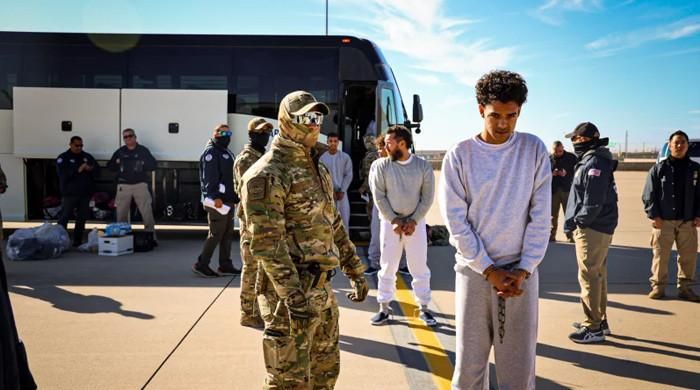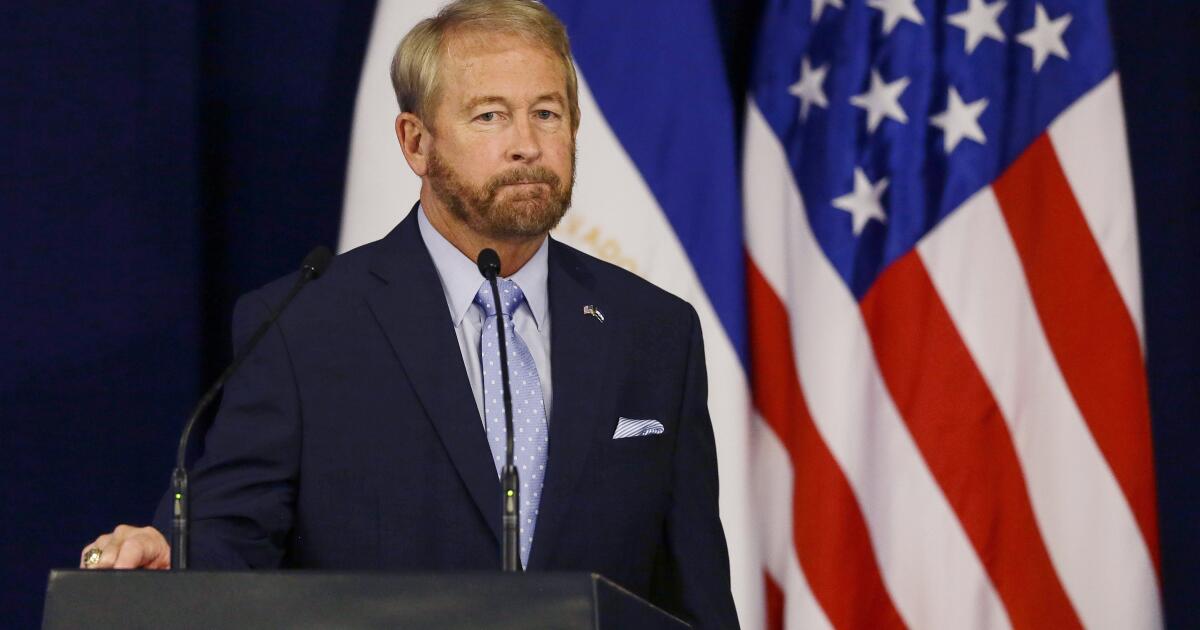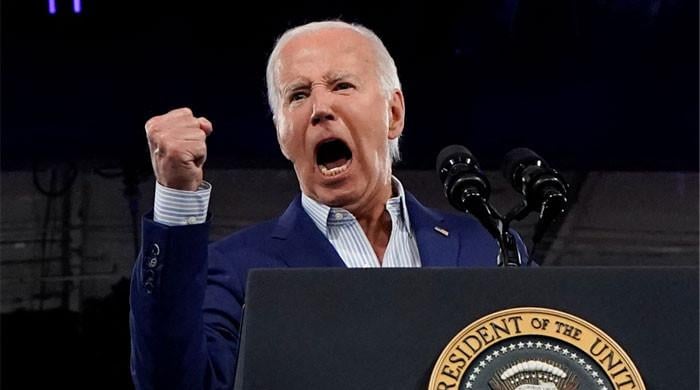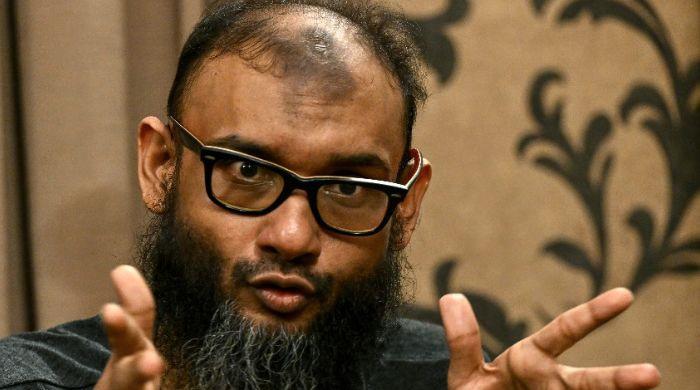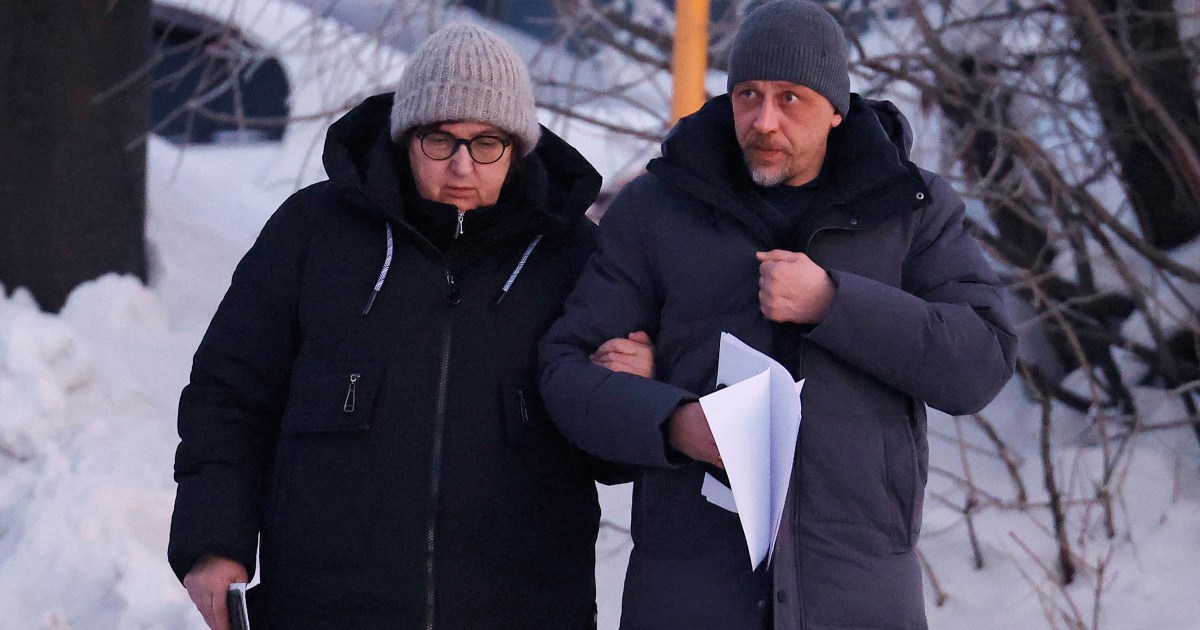- The ACLU challenges the arrests of migrants, citing violations of rights, secret.
- Families fight to contact the detainees; Legal access remains blocked.
- The DHS defends transfers, claiming that detainees have gang affiliations.
Texas: The American Union of Civil Libertads (ACLU) and several immigrant defense groups have filed a lawsuit against the Trump administration to obtain access to migrants arrested flown to Guantanamo Bay.
The ACLU argues that keeping these migrants without access to lawyers or communication with their families violates their habeas corpus rights, rights of the first amendment, the rights of due process and the provisions of the Immigration Law. The demand highlights the isolation of the detainees and criticizes the lack of transparency around their arrest.
The demand does not specify the total number of migrants arrested in Guantanamo, but includes details of three Venezuelan nationals whose families have struggled to locate and contact them. A family member hired a lawyer, but even legal representatives have not been able to establish communication. ACLU argues that this deliberate isolation is consistent with the history of Guantanamo as a secret prison center.
This marks the first time in the history of the United States that immigrants detected in the American soil have been held in the Guantanamo Bay. ACLU has emphasized that the isolation of these detainees contrasts sharply with the lawyer access protocols provided to migrants held within the United States.
Families fight for contact, legal representation
Immigration and Customs Compliance facilities (ICE) generally allow detainees to have legal representation and external communication. The lawsuit requires that the government provide lawyers to access detainees, reveal their exact locations and issue early notices before transferring any migrant to Guantanamo.
The Department of National Security (DHS) has responded to the lawsuit with the spokeswoman Tricia McLaughlin stating that ACLU seems to prioritize “highly dangerous criminal foreigners, including murderers and members of violent gangs”, on the safety of US citizens. However, a CBS investigation has revealed that many of the detained migrants are not violent and are considered “low risk”, challenging their administration as criminals.
Since the beginning of February, the Trump administration has transferred approximately 100 detainees of immigrants from El Paso, Texas, to Guantanamo Bay. Military flights have transported more than a dozen migrants per trip, with at least eight flights in so many days.
Government's justifications face scrutiny
American officials have described these people as “the worst of the worst”, including the alleged members of a notorious Venezuelan gang. However, Propublic and Texas Tribune journalists have identified almost a dozen detainees, including three Venezuelans, and have gathered evidence that contradicts government claims.
Three Venezuelan detainees, previously held at an immigration detention center in El Paso, had been waiting for deportation after crossing the border between the United States and Mexico. Due to Venezuela's previous reluctance to accept deportees, many migrants had been trapped in the arrest of the United States for months. According to the judicial records of the United States, two of the three detainees had no criminal record rather than the illegal entry into the country, while the third had been accused of assaulting an officer during a disturbance within the detention center.
Concerns of Human Rights and Legal Implications
The families of these detainees have expressed anguish for their sudden and inexplicable transfers to Guantanamo Bay. A detainee, José Daniel Simancas, a 30 -year -old construction worker, had traveled to the United States in search of work. His sister, Yesika Palma, declared that he had never been involved in any criminal activity and questioned why he was being treated as a terrorist.
Similarly, Angela Sequera has not been able to contact her son, Yoiker Sequera, who worked as a barber before being arrested. Michel Duran, whose Mayfreed Duran was also transferred, described his anguish due to the lack of information about his son's whereabouts.
Legal representatives who try to reach detainees have also been denied access. The Aclu lawyer, Lee Gelernt, emphasized that never before in the history of the United States had been taken from the American soil, sent to Guantanamo and denied access to the outside world.
Demand argues that this practice directly violates fundamental constitutional rights.
The DHS has defended its actions, stating that some detainees are linked to the criminal organization of Train de Aragua, a Venezuelan gang that President Trump designated as a terrorist group.
However, there has been controversy about the methods used to identify alleged gang members, including tatto marks, which legal experts argue that it is an unreliable indicator.
The families of the detainees insist that their relatives have no links with criminal organizations and have provided official Venezuelan documents as proof of their clean records.
Guantanamo arrests are part of the broader immigration repression of the Trump administration, which has included raids throughout the country and mass deportations.
From January 20 to the beginning of February, federal agents arrested at least 14,000 immigrants, although almost half of the detainees only had sentences for minor crimes. Government data shows that the Administration has deported an average of 500 people per day, a significant decrease compared to the 2,100 daily deportations during fiscal year 2024 under President Biden. Officials attribute this difference to the decrease in border crossings.
President Trump ordered the departments of National Defense and Security to prepare 30,000 beds in Guantanamo for what he describes as “illegal criminal foreigners that threaten the US people.”
Some detainees are arrested in the Guantanamo maximum security prison, while others are in the migrant operations center, previously used for intercepted individuals in the sea.
The relatives of some detainees have reported that US officials are using tattoos as a gang affiliation indicator. José Daniel Simancas, for example, is from Aragua, the region where Train of Aragua originated. His sister, however, insists that his tattoos have no connection with criminal activity. “Having tattoos is not a crime,” he said.
The cousin and the wife of Simancas were released in the US. After requesting asylum, but was arrested and then transferred to Guantanamo. His last contact with his family was on February 7, when he informed them about his transfer. His sister is still hopeful but deeply concerned about her destiny.
Michel Duran only realized that his son had been sent to Guantanamo after recognizing his face in a Tiktok video that shows migrants stopped in grilletes addressing a military plane in the passage.
His son had left Venezuela with dreams of opening a barber in Chicago. He was arrested during his third attempt to cross the border of the United States and was then convicted of assaulting a federal officer during a riot within the Immigration Detention Center.
Angela Sequera, who had been in daily telephone contact with her son Yoiker while she was stopped in the Paso, suddenly stopped listening to him. He later received a call from another detainee, who informed him that his son had been transferred to Guantanamo.
However, she has not been able to confirm her exact location. Yoiker had given himself to the border patrol in September, with the intention of seeking asylum in the United States. His mother believes that he is being unjustly accused of affiliation to gangs.
ACLU's demand defies the secret and legality of arrests, arguing that the United States government cannot deprive migrants of their fundamental rights simply by transferring them to Guantanamo Bay. As legal battles continue, families remain in limbo, unable to communicate with their loved ones or obtain information about their destiny.

